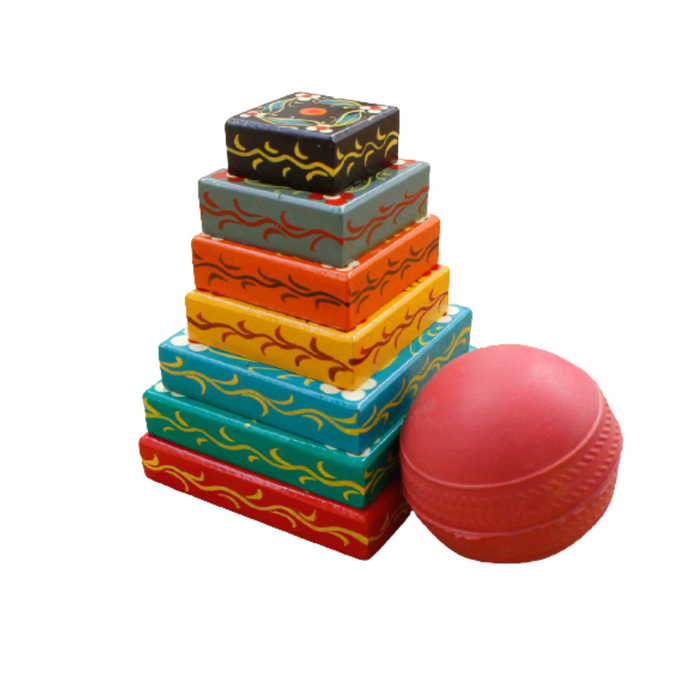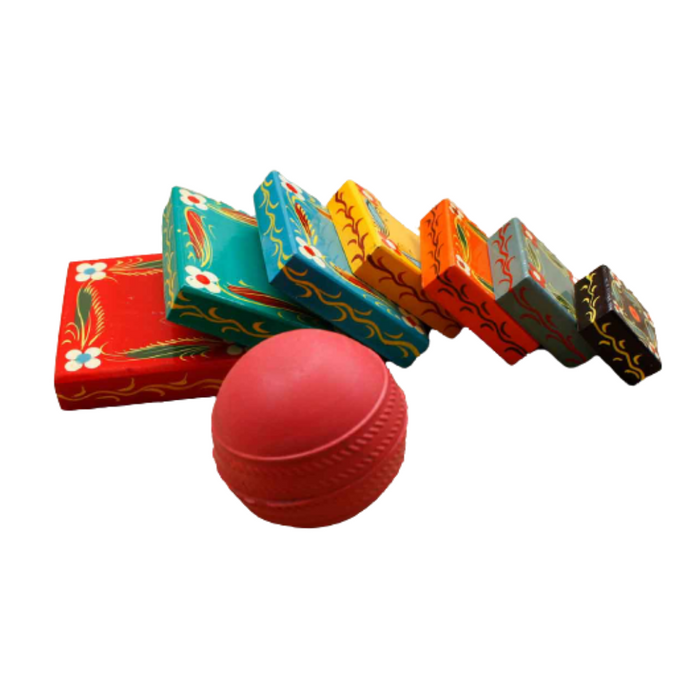
Ancient Living Lagori - 7 Stones - 1 Set
Lagori Seven Stones Pitthu Satodiyu Traditional Indian Game
Regional adaptations: Popular with the names of Lagori in Hindi, Pitthu in Northern India, and Lingorcha in Maharashtra.
This ancient yet fascinating teamwork-oriented game involves precision and strategy. The game’s roots originate 5000 years ago in Southern India and were played by children for leisure. This is a great way to tire yourself out with lots of running, throwing, and stacking throughout the game. Children often played this game in the sunny outdoors, it was said that Krishna played this game as a child, teaming up with their friends and brewing up friendly rivalries, but Lagori is a great way to build social skills and sportsmanship qualities.
Crafted with Love: Ancient Livings Seven Stones uses colorful hand-painted fine-wooden blocks instead of stones to prioritize the safety of the players. The ball is made of rubber to reduce the risk of injuries. This allows more flexibility as this traditional outdoor sport can be played indoors as it will not damage the furniture and articles inside the house.
Rules
The players must be split up into 2 teams (2 or more players per team)
The seven stones must be piled up on a marked spot in ascending order, with the largest stone at the bottom.
Decide which team goes first by tossing a coin or alternatively tossing the smallest stone in the air and calling what side it will land on. Whichever team wins the toss will go first. Let’s say Team A won the toss.
One player from Team A will get to throw a ball at the pile of stones. Each player from Team A gets 3 opportunities to throw at the stones if they miss. If none of them hit, Team B gets their chance at hitting the stones.
If any player from Team A hits the stones, Team A has the objective of rebuilding the pile of stones. Team B will grab the ball and try to hit the players of team A with it. If the ball strikes the player from Team A, that player is out and Team B gains 1 point. To defend themselves players from Team A who are trying to dodge the throws of Team B can tap the players of Team B to temporarily be immune to being hit by the ball
Once Team A successfully rebuilds the pile, they get another opportunity to hit the pile. Each pile they knock down adds a point to their score.
After all, the players of Team A are out, then the teams swap sides.
After 3 rounds each whichever team has the most points is proclaimed the winner.
